MOOT COURT PROGRAM
Administered by our Center for Advocacy and Dispute Resolution and led by the Moot Court Executive Board, our Moot Court Program provides opportunities for over 100 students each year. Our signature events include three internal competitions: the One-L Advocacy Event, the Advocates Prize Moot Court Competition, and the Center for Advocacy Jenkins’ Trial Competition. Students may also be chosen to compete in moot court, mock trial, and transactional teams throughout the country.
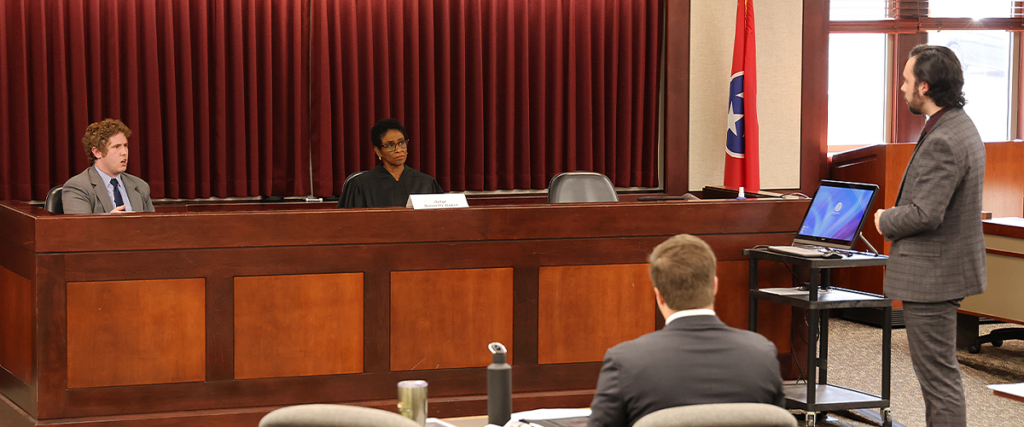
MOOT COURT EXECUTIVE BOARD
The Moot Court Executive Board is comprised of law students who are elected by the Moot Court Board in recognition of their excellence in moot court activities. The Moot Court Board consists of every student who participates in a moot court related activity during the school year.
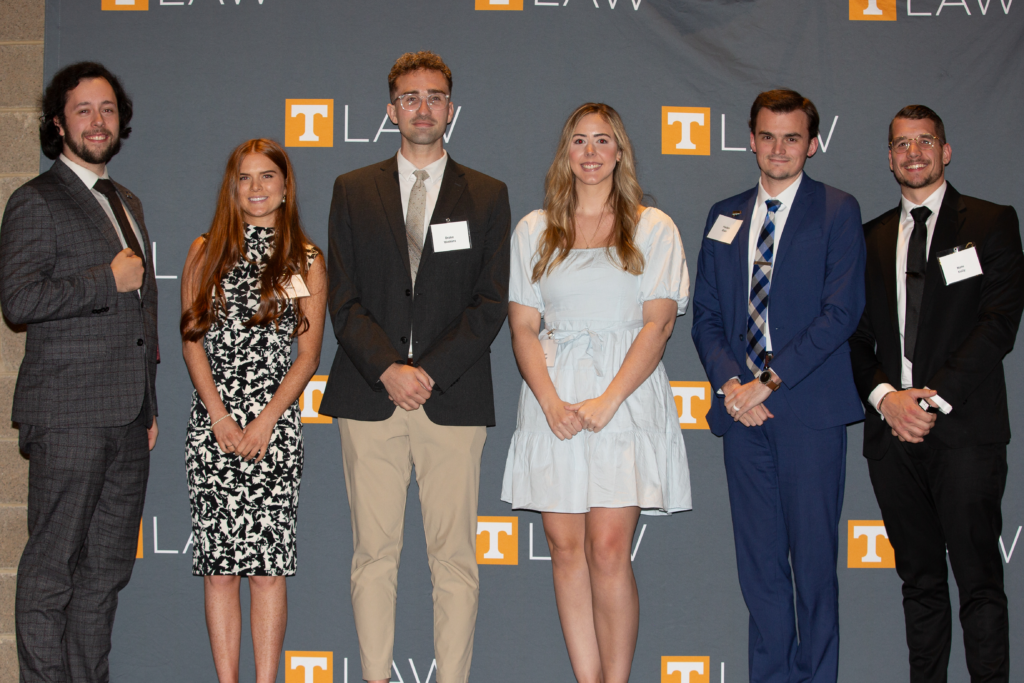
The Executive Board for 2024-2025 consists of:
Chair – Nate Kelly; Vice Chair, Advocates’ Prize – Gabi Choate; Vice Chair, CADR Trial Competition – Grant Peterson; Secretary – Haden Blair; Public Relations – Evan Turner; and Treasurer – Drake Watkins
INTERNAL EVENTS
Advocates Prize Moot Court Competition:
For nearly five decades, students have participated in our Advocates’ Prize Competition. This Fall semester event requires students to write an appellate brief and deliver oral arguments before members of the bench and bar. The final round has been held before dozens of federal and state judges including Justice Elena Kagan.
One student receives the coveted Spenser Powell award as the best advocate. The award recognizes the life, accomplishments, and legacy of Spenser Powell (class of 2017), one of the most successful and talented students in the history of the College of Law. Previous winners are:
2018: Dave Hall
2019: Kaleb Byars
2020: Courtney Harton
2021: Anne Crisp
2022: Emma Savage Fowler
2023: Gabriella Choate
2024: Elijah Parkhurst
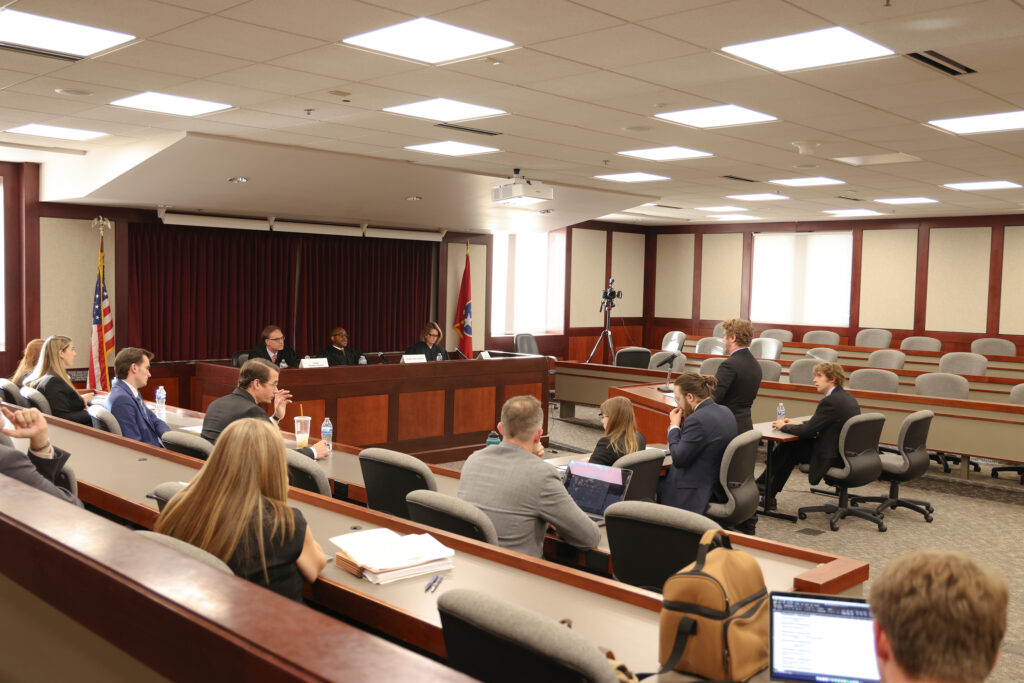
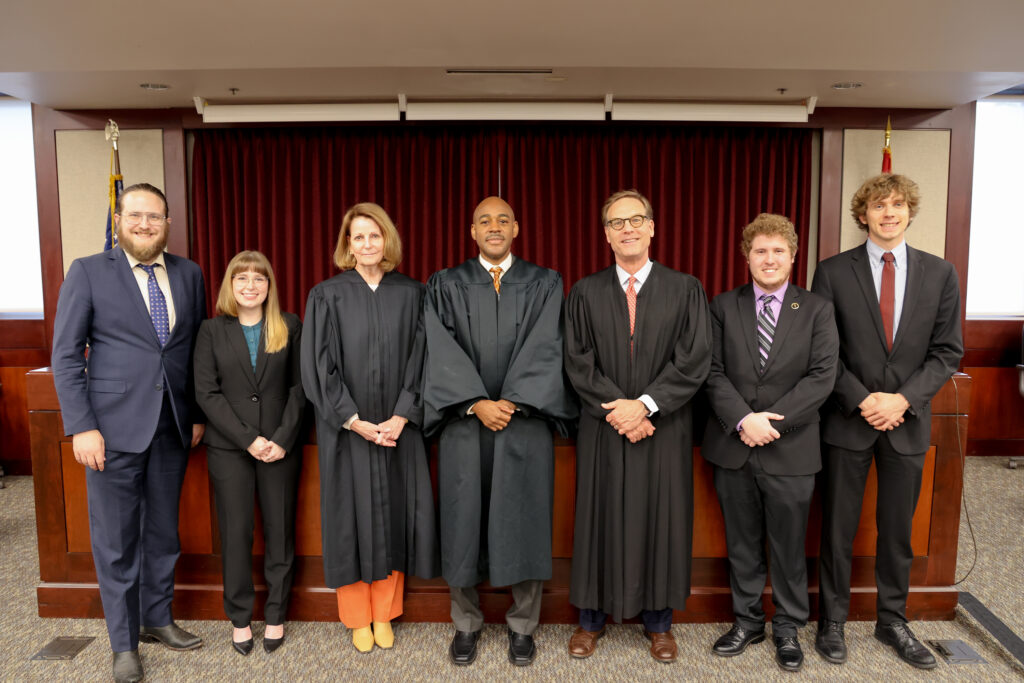
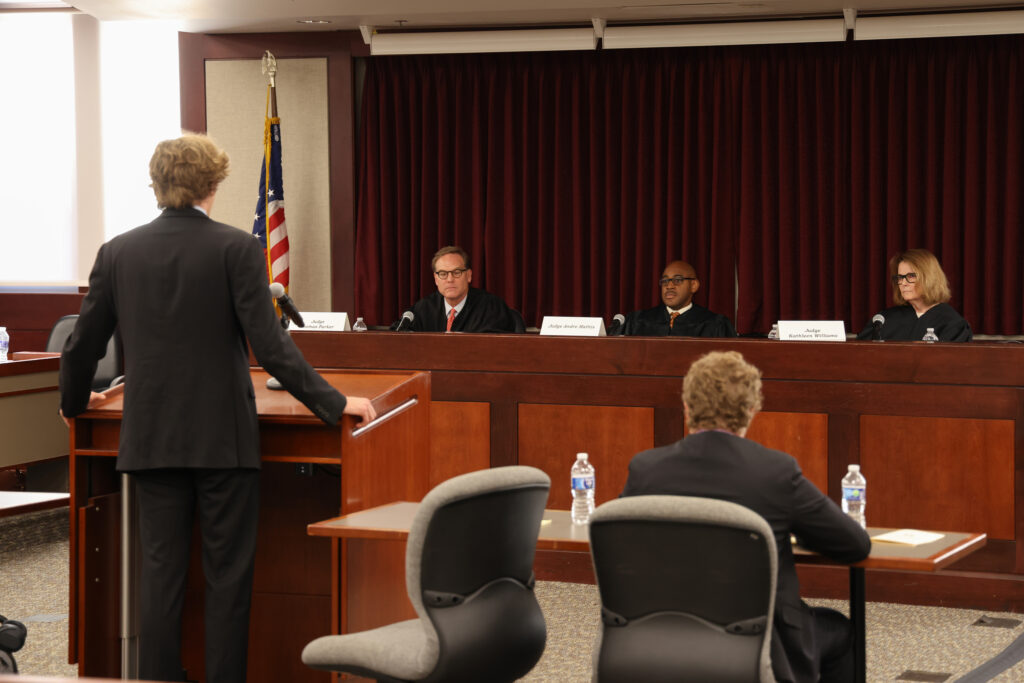
CADR Jenkins Mock Trial Competition:
A highlight of the Spring semester, our Mock Trial Competition has provided an opportunity for our students to showcase their trial skills for nearly 50 years.
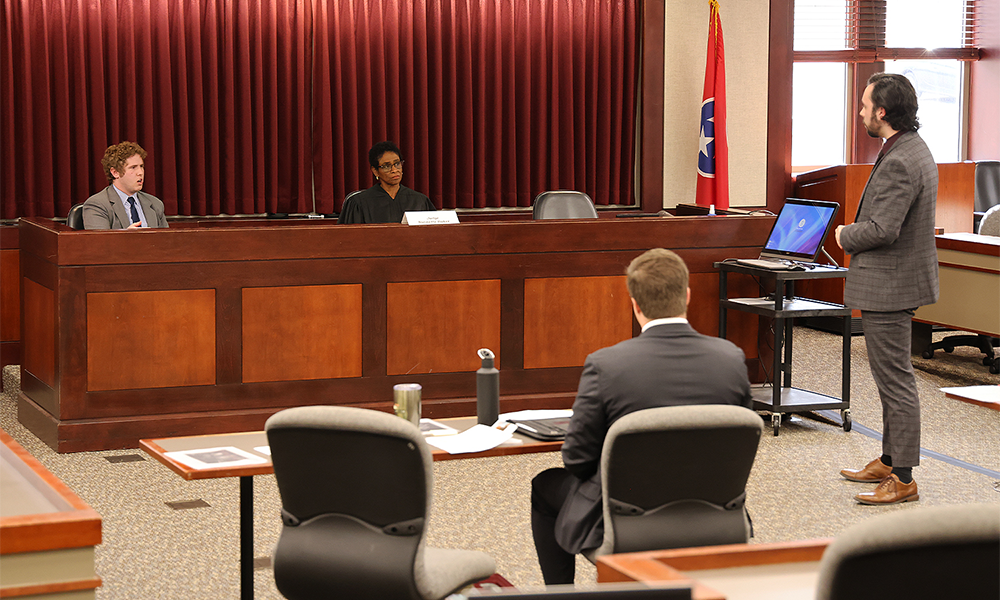
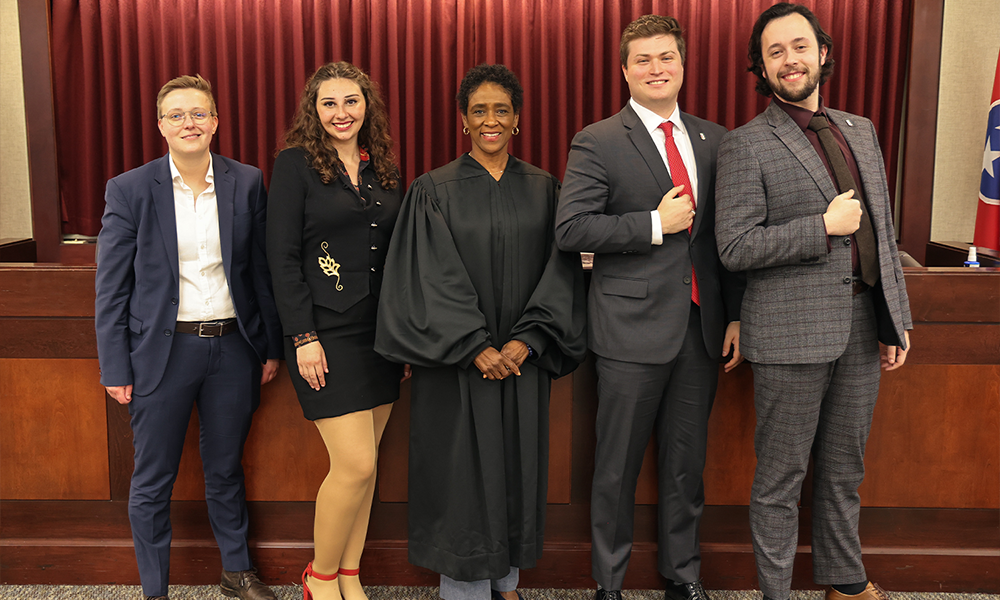
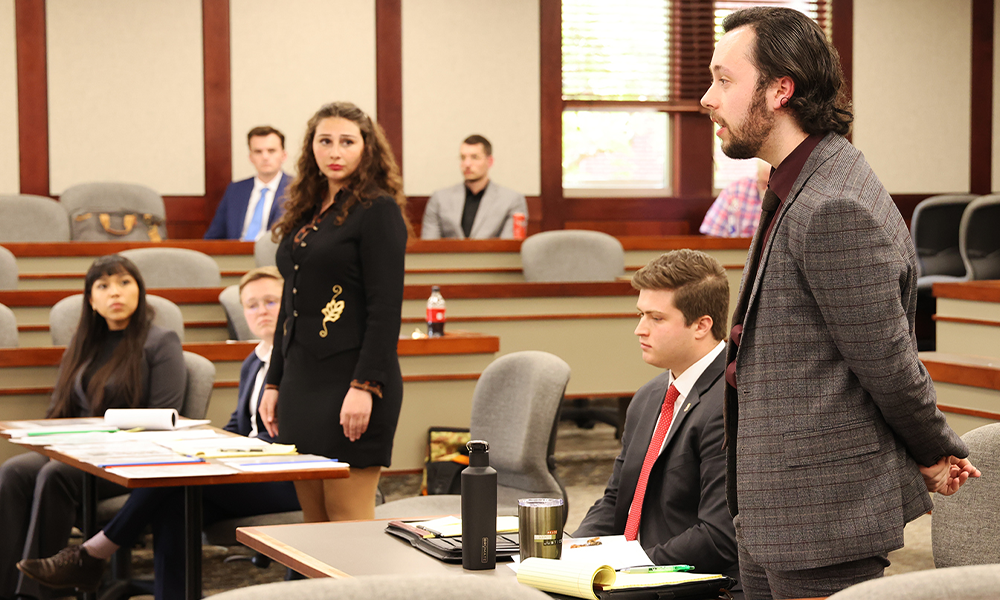
The One-L Advocacy Event:
First-year students, with the coaching assistance of second and third-year students, compete for prizes by preparing and delivering an opening statement before members of the bench and bar. Created by former Center Director and Professor Penny White and College of Law alum Michael Galligan, this Spring Semester event has become one of the most popular events of the year.
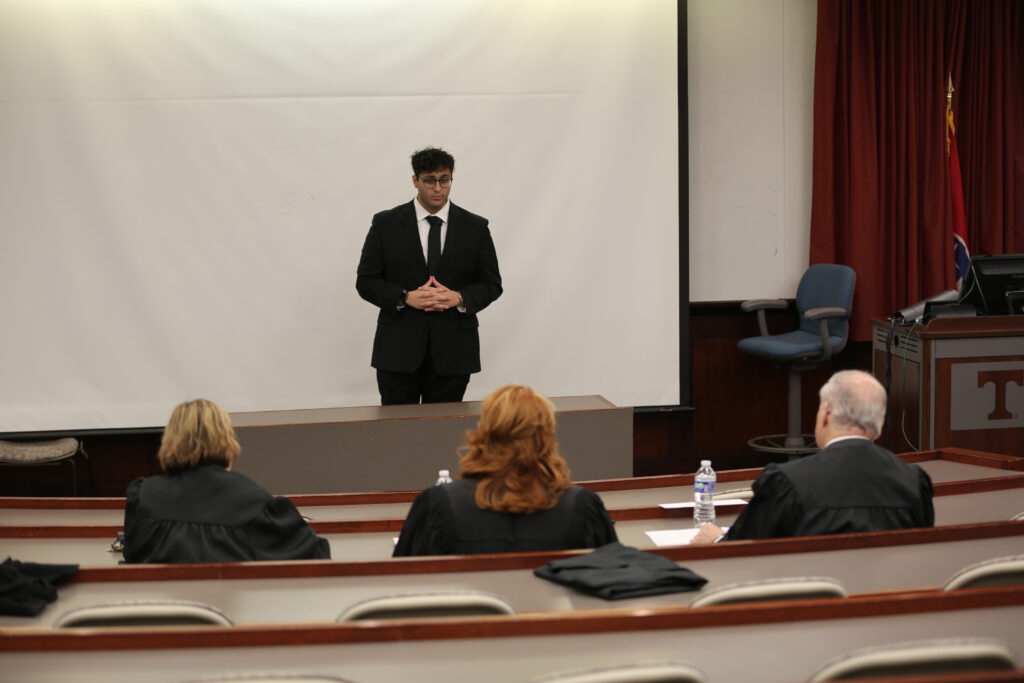
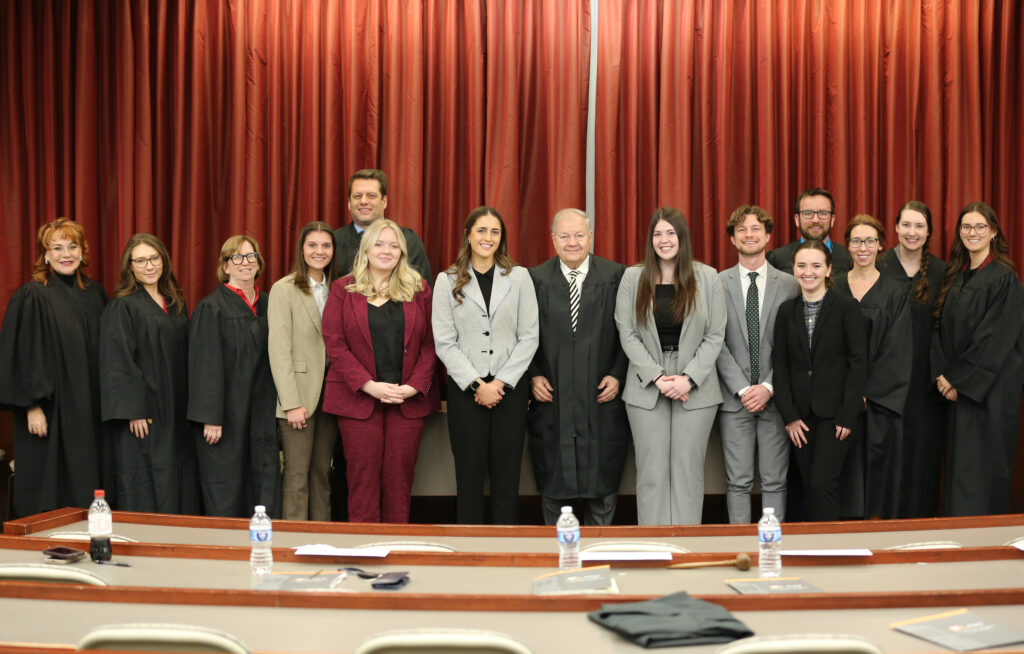
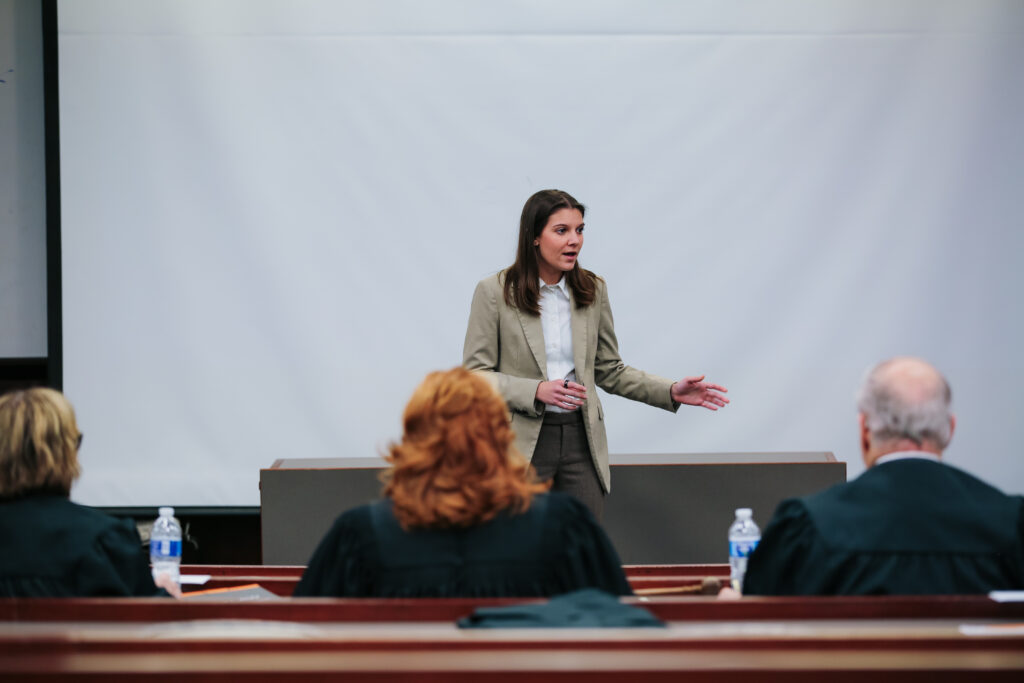
INTERSCHOLASTIC COMPETITIONS
Each year over thirty students are selected to participate at the highest level in competitions throughout the country. We are proud to showcase their success:
Constance Baker Motley Competition Regionals (Second place in 2025)
Thurgood Marshall Moot Court Competition Regionals (Second place in 2025)
National Moot Court Team (First Place in Regionals 2019-2022)
Trademark Law (Second Place, 2023)
The Closer (First Place in 2025; First Place in 2024; Second Place, 2023; Second Place, 2019; First Place, 2018; First Place 2017)
Law Meets Transactional (Second Place, 2023; First Place, 2022; First Place, 2021)
William & Mary Colonial Cup (Second Place, 2024)
Bryant Health Law (Fourth place, 2024; Second Place, 2021)
PAD Mock Trial Team (Second Place, 2024; First and Second Place, 2023; First Place, 2022; Third Place, 2021; First Place, 2019)
Battle in the Bluegrass Mock Trial (First Place, 2023)
We also regularly field teams in the Philip C. Jessup International Law Moot Court Competition, Cardozo/BMI Entertainment & Communications Law Moot Court Competition, National Native American Law Student Association (NNALSA) Moot Court Competition, National Mock Trial Team, Tulane Baseball Arbitration, Tulane Football Arbitration, and Villanova Baseball Arbitration.
EXCELLENCE
McClung Medal: Each year this award recognizes a single student for their overall excellence in our program.
Devitt Award: This award is presented to a member of the National Moot Court team, in honor of the life and accomplishments of 1987 alum, Susan Devitt.
Order of Barristers: Each year approximately ten to twelve students are nominated to this National Honorary Organization in recognition of their outstanding performance and service.
Contact Us
Rodd Barckhoff
1505 W. Cumberland Ave.
Knoxville, Tennessee 37996
Email: rbarckho@utk.edu
Contact Us
Rodd Barckhoff
1505 W. Cumberland Ave.
Knoxville, Tennessee 37996
Email: rbarckho@utk.edu
Moot Court
Participation in moot court and mock trial competition provides our students a unique opportunity to develop skills in persuasive writing, research, and oral advocacy. As such, it is highly valued by law firms and other organizations that employ attorneys. UT Law’s Moot Court Board is comprised of third-year students who have demonstrated excellence in trial and appellate advocacy. The board sponsors three annual intramural competitions: the Ray H. Jenkins Trial Competition and the Advocates’ Prize Moot Court Competition and the First-Year Advocacy Competition. The board coordinates more than twenty traveling teams involving approximately seventy-five students and ranges “Docket Days” at the college so the entire student body can observe the courts in action.
Ray H. Jenkins Trial Competition
The Ray H. Jenkins Trial Competition honors the memory of a prestigious member of the Knoxville bar and is supported by the law firm of Jenkins and Jenkins. The competition consists of two rounds. In each round, a student must deliver an opening statement and conduct the cross-examination of a witness. Students are provided with a trial record one week before the first round and are assigned to either the prosecution or the defense and assigned the witness they will cross-examine. Typically, students are judged based on their familiarity with the content and purpose of an opening statement and cross-examination and their ability to advocate with confidence and conviction.
Advocates’ Prize Moot Court Competition
The Advocates’ Prize Moot Court Competition allows students to present an oral argument before a panel of professional judges. Students are judged on the quality of their oral argument for the competition. Judges prepare for the competition by reviewing a bench brief so that they are familiar with the facts and case law and can ask probing questions pertaining to the issues raised.
Judges score each competitor based on a variety of factors, including content and persuasiveness of argument, knowledge and use of legal authority, and poise and effectiveness in responding to questions from the bench.